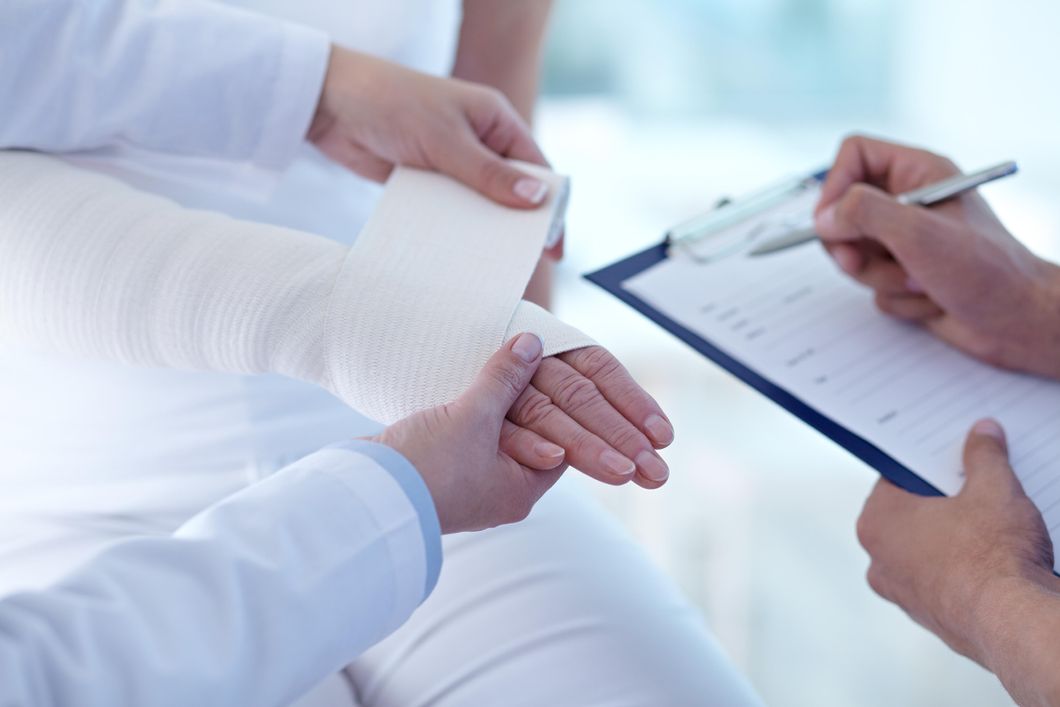After a personal injury occurs, there are certain things individuals should do and should not do. In the 21st century, individuals involved may want to let off steam associated with a personal injury case, however it is important to understand that decisions made during a pending case can potentially impact a pending case.
Below are some of the most common mistakes made during personal injury cases:
Sharing Information on Social Media
It's easy for individuals to vent. However, people that share feelings in social media settings can have the details shared come back to bite them later. Depending on the individual's privacy settings on a social media platform, these comments may be visible to the general public, and ultimately, the other party's legal team. To avoid a potentially embarrassing scenario, refrain from posting any information to a social media account.
Even information that is not related to the accident could come back to hurt a social media user involved in a pending personal injury case. If a plaintiff posts photos of themselves engaging in certain activities, the defense could claim that the plaintiff was able to go about their lives as usual. Ultimately, the usage of social media could hurt a personal injury victim in a pending case.
Failing To Call The Police
A police report is imperative to any potential injury claim. While not all personal injuries will require a police report, it is strongly advisable to obtain a police report if an auto accident or an injury suffered from another party's negligence caused the injury.
A police report can provide the basis for the injuries sustained in a given accident and can become a key piece of evidence in a personal injury case. By having a third party document the injuries in an accident, an injured victim can provide specific details regarding the injury shortly after the event occurred.
Talking About Your Personal Injury Case
Sharing information about your case, especially with individuals on the side of the defense or at-fault driver, can impact your case. There are far too many drawbacks to discussing a pending case with anyone from the other side of the case.
If anyone reaches out to the plaintiff's side requesting a comment or statement, refer that individual to your personal injury attorney. Do not discuss any details with any individual over a pending personal injury case.
Using Poor Judgement During the Case
After a personal injury case is filed, it is common that insurance representatives will reach out to the injured victim to conduct an investigation into the matter.
During this investigation do not lie to an insurance representative. If you feel uncomfortable giving a statement, consult with your legal counsel. Utilize your best judgement and understand the important components of being sincere.
Accepting a Low Ball Insurance Offer
It is not uncommon for insurance companies and representatives to offer injured victims low ball settlement offers. Before you sign anything from an insurance company ensure that you consult with a personal injury attorney before signing away rights.
Depending on the language involved in the insurance offer, an injured victim may waive the right to pursue additional compensation resulting from the damages suffered. Unless you are very familiar with legalese, contracts and insurance methods it is strongly advisable to avoid signing any insurance offer without first consulting with an attorney.
Failure to consult with an attorney can have long-term consequences that limit the amount of damages an injured victim can recover. After a personal injury occurs, never sign any document that is not fully understood.
Thinking You Know Better Than a Doctor
If a doctor provides a prognosis for injuries suffered by a victim, it is best to follow those instructions provided by the medical doctor. Follow through with any follow up appointments and ensure that all of the advice is understood. If you have questions about medical treatment for your injuries, it is imperative that a victim understands what needs to occur.
Keep all information during a doctor's visit and back up the documents electronically in case the originals are damaged or lost. Backup prescriptions and save medical bills for future reference.
Keeping organized files showing that the victim followed through with medical treatments for the injuries sustained can help a victim's case during. Keep all medical records in safe place.


















